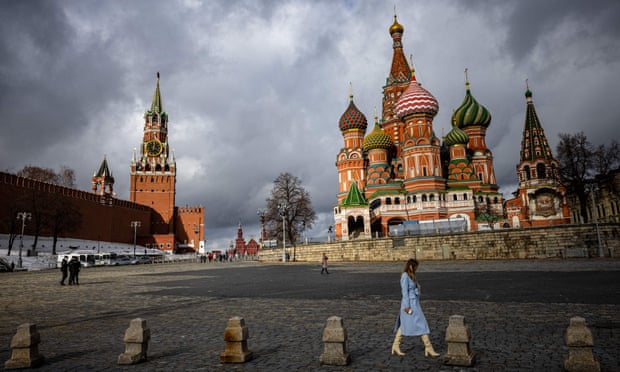Under new guidelines enacted in response to concerns that bitcoin and other cryptoassets are being used to circumvent sanctions imposed in reaction to Russia’s invasion of Ukraine, cryptocurrency exchanges must notify suspected sanctions violations to UK authorities.
On August 30, official guidelines was modified to specifically identify “cryptoassets” as assets that must be frozen if sanctions are imposed on a person or entity. Cryptoassets, in addition to digital currencies such as bitcoin, ether, and tether, could contain other hypothetically valuable digital assets such as non-fungible tokens.

Dimitar Dilkoff/AFP/Getty
The rules established by the Treasury’s Office of Financial Sanctions Implementation will make crypto exchanges criminally liable if they fail to disclose clients targeted for sanctions.
According to the guidelines, crypto exchanges must act quickly if they suspect that one of their customers is subject to penalties, or if they suspect a breach of sanctions, putting them in the same category as estate agents, accountants, attorneys, and jewellers.
Financial sanctions against individuals and companies associated with Vladimir Putin’s regime have been among the UK’s most visible responses to the invasion of Ukraine.
Sanctions have been levied against oligarchs and family with direct stakes in cryptoassets. These have included Vladimir Potanin, Russia’s previous second richest man, who backed Atomyze, a Swiss blockchain company.
Said Gutseriev, the oligarch Mikhail’s son, owned a stake in a Belarus-based cryptocurrency exchange until August 2021, when he was sanctioned on the same day as Potanin in June. Oleg Deripaska, a metals tycoon, has already encouraged Russia’s central bank to allow bitcoin to be used as a form of payment. There is no evidence that they employed cryptoassets to avoid penalties.
Binance, the world’s largest cryptocurrency exchange by trading volume, announced in April that it had blocked the accounts of Russian politicians’ relatives, including Polina Kovaleva, the stepdaughter of Foreign Minister Sergei Lavrov, and Elizaveta Peskova, the daughter of Putin’s spokesman, Dmitry Peskov. The exchange previously downplayed concerns about cryptocurrency being used for sanctions avoidance.
Using cryptocurrency to avoid sanctions and shift money around the world was already prohibited in the United Kingdom under regulations that apply to all “economic resources.” However, the adjustment highlights authorities’ concern about the relatively new assets, which could be handy for dodging sanctions because users do not conduct transactions through registered firms.
(function(d, s, id) {var js, fjs = d.getElementsByTagName(s)[0]; if (d.getElementById(id)) return; js = d.createElement(s); js.id = id; js.src = “//connect.facebook.net/en_US/sdk.js#xfbml=1&version=v2.0”; fjs.parentNode.insertBefore(js, fjs); }(document, “script”, “facebook-jssdk”));(function(d, s, id) {
var js, fjs = d.getElementsByTagName(s)[0];
if (d.getElementById(id)) return;
js = d.createElement(s); js.id = id;
js.src = “//connect.facebook.net/en_US/sdk.js#xfbml=1&appId=628156263970504&version=v2.3”;
fjs.parentNode.insertBefore(js, fjs);
}(document, ‘script’, ‘facebook-jssdk’));
Source link




